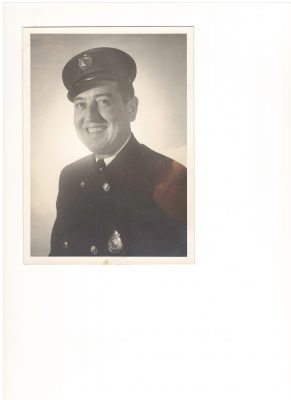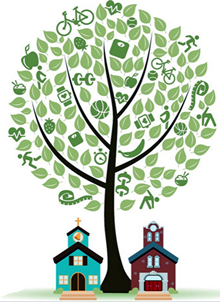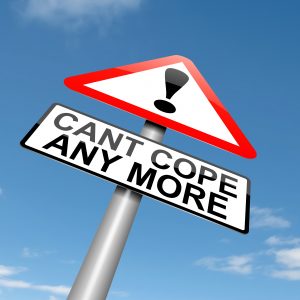 It’s hard to believe that I’ve not had my dad in my life for over 20 years now. So much of who I am and what I’ve taught to my children came from my dad. So, it’s appropriate that this blog be a tribute to my dad this Father’s Day.
It’s hard to believe that I’ve not had my dad in my life for over 20 years now. So much of who I am and what I’ve taught to my children came from my dad. So, it’s appropriate that this blog be a tribute to my dad this Father’s Day.
My dad grew up during the great depression. He had a difficult childhood filled with chaos and insecurity. That said, he grew up fast and started working hard at a young age to help support his family. I never knew a lot about my father’s life, which told me that it was most likely far more difficult than I ever imagined.
Dad and Mom married and like so many from the greatest generation, worked hard, saved and wanted more for their children than what they had. They were partners in life and business and got through the tough times with perseverance and grit. I grew understanding the value of money and its proper place, frugality and what made life meaningful and important. Dad treasured his family, valued his many friends, and gave back to his community. There was never a time in my life when my parents weren’t involved in community organizations that made the world a better place for those around them.
As the youngest of five children, my parents were older than average when I came along, so I journeyed with them in their aging years as a young mother. At 6’4″, Dad was always larger than life. A successful entrepreneur, he was wise in business, a respected leader and certainly a quick-wit with friends and family. He was from a generation when Dads weren’t overly involved in their children’s lives, nor particularly affectionate, but that was true of my time, so it was pretty normal.
Dad could fix just about anything. After all, he was the owner of a hardware store. Rarely if ever did we have the need for plumbers or handyman services. We had Dad, and if he couldn’t fix it, who could?
Tiny changes starting happening.
One day, I was talking to Mom and she mentioned that Dad had a hard time installing some new blinds. She said he had all the parts on the table and just couldn’t figure out what to do first. At the time it really didn’t occur to me that it was anything more than things taking longer to accomplish because he was older. For goodness sakes, I was in my twenties. I really wasn’t tuned in to all this aging stuff!
Like so many spouses, she didn’t want to alarm the children. Although Mom had seen these same changes with her own mother, there was a sense of denial that she was getting quite used to. So months turned into years, and with each one passing, Dad became less the person we knew. They didn’t travel anymore like they had enjoyed for so many years; mom often would drive, and too often we would note that Dad had a far-away look in his eyes.
When Dad was finally diagnosed with Alzheimer’s disease, Mom, was exhausted, frightened and living life on a roller coaster. Alzheimer’s had robbed the love of her life, our Dad and was taking its toll on our precious Mom. Decisions had to be made and with that, family dynamics began to change. It was a very tough road with many winding turns along the way.
Dad lived his last months in a memory care community. It was much different than the care communities are now. I’m pretty sure the culture change had not even been invented. Quality of care just wasn’t there, but we had little to compare it to. There just were not that many memory care communities and we chose one that was nice and close, so Mom wouldn’t have to drive that far. We weren’t particularly happy with the care, but I can’t say that we knew what to expect. Twenty years ago there just wasn’t a lot of education for families, and memory care was something foreign to us. Dad was very sad. So sad, that just a few months later he passed away. Mom was ridden with guilt, but by this time her own health was declining so rapidly, that there was no possible way for her to care of Dad. It certainly wasn’t what either of them (or any of us) had envisioned for the latter years of his life, but we got through it and learned many things along the way,
I’ve learned that we have the opportunity to love others in new ways. We used to call Dad our “hot-headed Italian”. Not the most patient man on the face of the earth, he also had a difficult time showing emotions, especially with his daughters. I found it especially touching that in his latter months, I could sit with him and he would embrace my hands and tell me many times how he loved me. I never doubted that my whole life, but having us being able to share those moments will always stay with me. We didn’t have to say much, during those visits. Just being together was a gift to us both.
While Alzheimer’s robbed him and us in so many ways, he lived until his 84th year. He always said his life began when he married my Mom. It was a good life, and they were very blessed in so many ways, none of which they ever took for granted. I was blessed to have a Dad that taught me so much about life, and in the end, so much about death, and accepting that life is far from perfect, but that love is what matters. That we often can’t choose our path but do the best with what we have.
Happy Father’s Day, Dad and thank you for your love and all you taught me.
Pam Brandon is President/Founder of AGE-u-cate Training Institute and a passionate advocate for older adults and those who care for them. Pam has devoted the last 10 years to helping family and professional caregivers. She is the creator of the Dementia Live® sensitivity awareness program that has helped tens of thousands of caregivers worldwide to better understand life with dementia.
www.AGEucate.com

 Julie has worked in Aging Services for over 30 years and has been a Licensed Nursing Home Administrator since 1990. She is a Certified Master Trainer with the AGE-u-cate Training Institute. Through her company Enlighten Eldercare, Julie provides training and educational programs on elder caregiving to private and professional caregivers. She is an instructor and the Interim Director of Gerontology at Northern Illinois University and lives in the Chicago Northwest Suburb of Mount Prospect, IL.
Julie has worked in Aging Services for over 30 years and has been a Licensed Nursing Home Administrator since 1990. She is a Certified Master Trainer with the AGE-u-cate Training Institute. Through her company Enlighten Eldercare, Julie provides training and educational programs on elder caregiving to private and professional caregivers. She is an instructor and the Interim Director of Gerontology at Northern Illinois University and lives in the Chicago Northwest Suburb of Mount Prospect, IL.
 Beth is a Certified Master Trainer with the
Beth is a Certified Master Trainer with the  Stress is simply a part of life. Think about each and every stressor that affects our lives almost daily. Here are just a few to think about: traffic, annoying telemarketing calls (what telemarketing calls aren’t annoying?), junk mail, the news, job demands, airline delays (let’s just airports in general), and the list goes on. Life is complicated, stressful and caregiving is even more so on just about every level. So instead of talking about eliminating stressors, let’s talk about how caregivers can put coping skills into practice so that falling into the traps of anxiety, depression and more is eliminated or decreased as much as possible.
Stress is simply a part of life. Think about each and every stressor that affects our lives almost daily. Here are just a few to think about: traffic, annoying telemarketing calls (what telemarketing calls aren’t annoying?), junk mail, the news, job demands, airline delays (let’s just airports in general), and the list goes on. Life is complicated, stressful and caregiving is even more so on just about every level. So instead of talking about eliminating stressors, let’s talk about how caregivers can put coping skills into practice so that falling into the traps of anxiety, depression and more is eliminated or decreased as much as possible. It’s hard to believe that I’ve not had my dad in my life for over 20 years now. So much of who I am and what I’ve taught to my children came from my dad. So, it’s appropriate that this blog be a tribute to my dad this Father’s Day.
It’s hard to believe that I’ve not had my dad in my life for over 20 years now. So much of who I am and what I’ve taught to my children came from my dad. So, it’s appropriate that this blog be a tribute to my dad this Father’s Day.